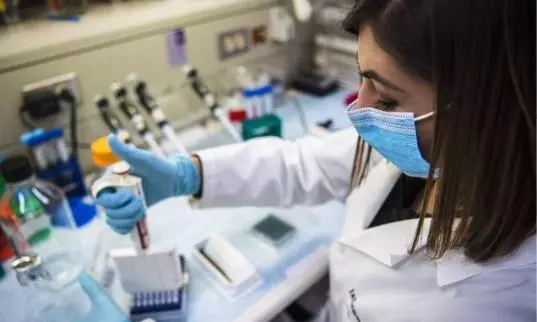
Scientist treats her stage 3 breast cancer using lab-grown viruses
text_fieldsRepresentational Image
New Delhi: A 50-year-old scientist in Croatia injected lab-grown viruses to treat her stage 3 breast cancer, according to a report in Nature.
Beata Halassy, a virologist at the University of Zagreb, discovered breast cancer in 2020 in the same place where she previously had a mastectomy.
Unable to face another bout of chemotherapy for the second recurrence, she decided to work it on her own.
Halassy's case study published in the journal Vaccines said that the virologist combined a measles virus and a flu-like pathogen creating a potent shot which attacked the tumour directly, helping the immune system.
The self-administered treatment called oncolytic virotherapy (OVT) helped her remain cancer-free for four years, treating the stage 3 cancer.
The emerging field of OVT uses viruses to target cancerous cells thus provoking immune system to fight them.
Though OVT clinical trials are used in late-stage, metastatic cancer, scientists in the past few years applying it to early-stage cancers as well.
Halassy reportedly said that the measles virus and a vesicular stomatitis virus included in the injection are known to infect the type of cells from it her tumour originated.
It is reported that Halassy advocates the use of OVT as the first time treatment for cancer rather than turning to current treatment like surgery, chemotherapy, biological therapy, or radiation.
However, the medical research community discourages self-medicating with OVT.























